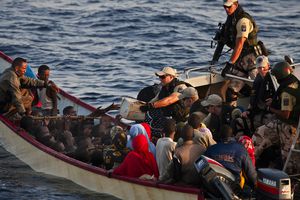The question of an operational control center in Brussels is raised

(BRUSSELS2) Even if the General Leakey - who is leaving the EU General Staff these days - seems skeptical about a permanent HQ, all the participants in the Weimar triangle have said this over and over again to Genshagen. The current planning structures are no longer sufficient, an "operational command center" or the conduct of civil and military operations, "permanent" and "in Brussels", is needed. All words are important and weighed. Whether it is the soldier engaged in an operation, the representatives of the various ministries of defense or foreign affairs, French, German, Polish, there is a common wavelength there. Now the question is how to convince the 27... and especially 1 alone (the United Kingdom not to mention it). We see however that there is no mention of a HQ as such but rather of structures, a word easier to convey...
Commentary: start with an inter-unit crisis management center
In my opinion, there is a preliminary stage to that. It would be useful to bring together, on the same site, the three crisis centers that already exist in Brussels. ECHO, for humanitarian aid, MIC for civil protection, SITCEN, for consular protection, CPCC, military headquarters.
Of course, you will retort, in a strongly argued way, the objectives are very different and the modes of action very different. And, then, the connections are already regular. Etc... These arguments are unintelligible today when the political intention, transcribed in the Treaty of Lisbon, is to bring together all the instruments of the Union's foreign policy in a single hand and to have a more more "global".
On the one hand, nothing replaces the daily encounter, at the "café", in the corridors, the practical possibility of knocking on the door of one or the other (see OHQ Northwood), discussing very informal way, without hierarchical rules. In the event of a crisis, it is necessary to move very quickly and the fact of being able - at all levels - to meet, to exchange, beforehand, accelerates decision-making. Having everyone on the same site does not prevent everyone from having their own crisis management logic, their own interlocutors.
On the other hand, in terms of principles, the Europe which defends the global approach should put this approach into practice in the final moments of crisis. In these times of budgetary restriction, it would finally have an economic interest. And, icing on the cake, it would certainly make it possible to achieve this visibility that some people regularly deplore.
This crisis center would have the advantage of being able, without great institutional complication (just a decision by 2 commissioners: Catherine Ashton and Kristalina Georgieva), to already have a civil-military planning and conduct center (there would be no while military conduct to be approved).
(Nicolas Gros-Verheyde)